- Home
- About Us
- Services
- Treatments
- Acid Reflux
- Allergic Rhinitis
- Alcoholic Fatty Liver
- Ankylosing Spondylitis
- Anxiety / Stress
- Arthritis
- Asthma
- Cervical Spondylitis
- Celiac Infection
- Colitis
- Constipation
- Dermatitis
- Detox Programme
- Diabetes (Madhumeha)
- Hair Fall
- Headache
- Hormonal Imbalance
- Hypertension
- Insomnia
- Irritable Bowel Syndrome
- Lungs Disease
- Migraine
- Neurological Disorder
- Non Alcoholic Fatty Liver
- Obesity Management
- Pain Management
- PCOD
- PCOS
- Sciatica Pain
- Sinusitis
- Skin Disorder
- Slip Disc
- Stress Management
- Thyroid
- Weight Management
- Techno-Ayurveda
- Media
- Blog
- Contact Us

PCOD

Balancing Doshas
In Ayurveda, health is seen as a balance between the three fundamental energies, known as doshas: Vata, Pitta, and Kapha. Each person has a unique combination of these doshas, and when they are in balance, the body, mind, and spirit are healthy. However, when one or more doshas become imbalanced, it can lead to physical, emotional, or mental health issues.

Purification and Detoxification
Ayurvedic purification and detoxification, known as *panchakarma*, involves therapeutic treatments to cleanse the body of toxins (*ama*). Techniques include herbal therapies, oil massages, enemas, and fasting, aiming to restore balance, improve digestion, boost immunity, and rejuvenate overall health.
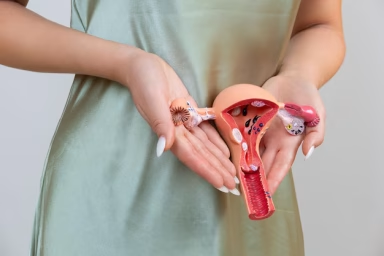
Regulation of Menstrual Cycles
Ayurvedic regulation of menstrual cycles focuses on balancing the doshas with herbal remedies, diet adjustments, and lifestyle changes. Herbs like Ashoka, Shatavari, and turmeric, along with stress management and routine practices, help restore hormonal balance and promote regular periods.
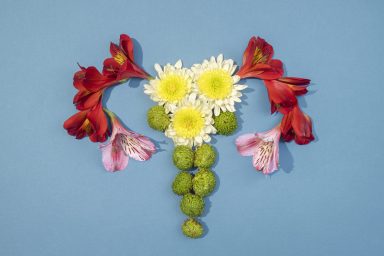
Improving Ovarian Function
Ayurvedic approaches to improving ovarian function involve balancing hormones through herbs like Shatavari, Ashwagandha, and Tribulus. A combination of a balanced diet, stress management, detoxification, and regular exercise helps enhance ovarian health and support reproductive vitality.
Understanding PCOD
Polycystic Ovary Disease (PCOD), also known as Polycystic Ovary Syndrome (PCOS), is a common hormonal disorder that affects women, particularly during their reproductive years. PCOD is a condition where a woman’s ovaries become enlarged and contain numerous small cysts (fluid-filled sacs). The word “polycystic” means many cysts, but not all women with PCOD have cysts, and it is important to note that the cysts are not harmful.
Symptoms of PCOD
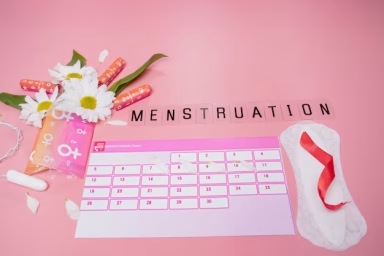
Menstrual Irregularities
Menstrual irregularities refer to any disruption or abnormality in the regularity, length, or flow of a woman's menstrual cycle. The menstrual cycle is typically around 28 days, though it can vary from person to person. An irregularity can involve cycles that are too long (longer than 35 days), too short (less than 21 days), skipped periods, heavy bleeding, or missed periods.
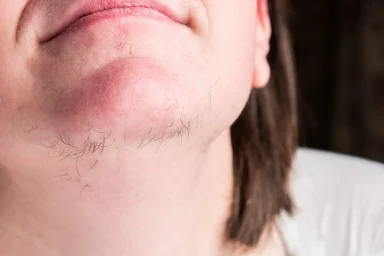
Hirsutism (Excess Hair Growth)
Hirsutism is the excessive growth of male-pattern hair in women, typically on the face, chest, and back. It is often caused by hormonal imbalances, such as higher androgen levels, and can be linked to conditions like PCOS or thyroid disorders.
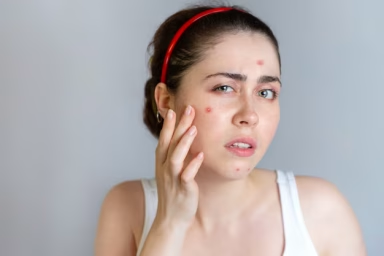
Acne
Acne is a skin condition characterized by pimples, blackheads, and cysts, commonly affecting the face, back, and shoulders. It occurs due to clogged pores, excess oil, bacteria, and hormonal changes, often triggered by puberty, stress, or hormonal imbalances.
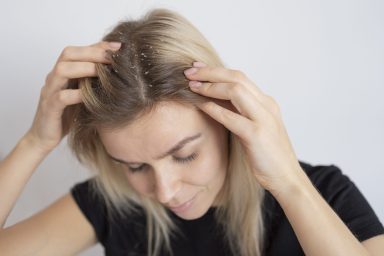
Thinning of Scalp Hair
Thinning of scalp hair refers to a gradual reduction in hair density, often caused by factors like hormonal changes, genetics, stress, or nutritional deficiencies. Conditions like alopecia areata or polycystic ovary syndrome (PCOS) can also contribute to hair thinning.
FAQs of PCOD
Polycystic Ovary Disease (PCOD) is a hormonal disorder where the ovaries produce an excess of androgens (male hormones), causing irregular menstrual cycles, cysts on the ovaries, and symptoms like acne, excessive hair growth, and infertility.
Common symptoms of PCOD include irregular periods, weight gain, acne, excessive hair growth (hirsutism), thinning hair, and difficulty in getting pregnant due to anovulation (lack of ovulation).
PCOD can affect fertility by causing irregular or absent ovulation, making it more difficult to conceive. However, with treatment options such as ovulation-inducing medications or assisted reproductive technologies (ART), many women with PCOD can successfully become pregnant.
